According to Elaine Aron’s research, 15-20% of the population is highly sensitive. Highly sensitive people (HSPs) are more affected by the world around them and within them. Compared to the rest of the population, they notice more subtleties, feel and think more deeply, and may feel overstimulated or overwhelmed. Scientists have named the HSPs heightened receptivity Sensory Processing Sensitivity.
Sensitivity has its advantages, so it makes sense that the course of evolution selected sensitive humans (and other animals – there are over 100 species who show high sensitivity!) to make up around 1/5th of the population. That said, high sensitivity also has its downsides. This article will discuss HSP strengths and struggles HSPs and bust common myths about what it means to be highly sensitive.
But first, here’s an image depicting the difference between an HSP and non-HSPs that always makes me giggle (and, as an HSP, feel very seen).
But first, are you ready for my I’m-an-HSP-and-don’t-want-to-make-anyone-feel-bad caveat? The following image isn’t a comment on the superior intelligence of an HSP. Instead, it’s meant to highlight the difference in the amount of information HSPs and neurotypicals parse in a given moment. #allneurotypesarebeautiful!
Are HSPs introverts? Are they shy?
According to Elaine Aron’s research, about 20% of HSPs are extroverted. This often comes as a surprise to those who don’t fully understand the trait.
HSPs tend to observe a situation thoroughly before jumping in. Therefore, they may be less quick to jump into a social situation than non-HSPs, and as a result, they may be seen as introverted or shy.
Do HSPs like to be alone?
As mentioned, 20% of HSPs are extroverts, meaning a significant proportion of highly sensitive people feel recharged after spending time with others.
Whether an HSP is extroverted or introverted, most HSPs contend with overstimulation due to their receptivity to sensory input. This means that even if socializing is recharging on one level, as in the case of extroverted HSPs, a highly sensitive person may need to spend time in low-stimulation environments to regulate their nervous system when overwhelmed.
Do HSPs have social anxiety?
HSPs register and process more information on an unconscious level than “non-sensitive” people. That means they’re more likely to be negatively impacted by challenging life circumstances such as a difficult childhood.
For that reason, HSPs are at a higher risk of developing mental health disorders such as anxiety and depression.
While HSPs are at higher risk of developing an anxiety disorder, not all HSPs develop social anxiety disorder. Just as an HSP's tendency to sit back until they fully observe an environment is different from shyness or introversion, any social awkwardness or avoidance they display may be related to overstimulation and depth of processing rather than anxiety.
Do HSPs have low self-esteem?
HSPs sometimes develop social anxiety or low self-esteem in response to messages they’ve received about their trait living in a neurotypical world.
As mentioned, neurotypical humans may erroneously conclude that a quiet, observant HSP is shy. For example, a sensitive child may hang back on the first day of school, observing their peers and the hubbub of their new classroom environment. If their teacher doesn’t understand high sensitivity, they may approach and say, Oh, are you scared? Are you feeling shy?” In turn, that child may feel self-conscious and wonder, Am I different? What if I am shy, like they’re saying?
That, in turn, might sow a seed in the child’s mind that turns into a sense that I’m not like other people – I’m not normal. This can blossom into low self-esteem and social anxiety in adolescence and adulthood.
Here’s the good news: HSPs blossom in the right environment
While navigating a non-sensitive world as an HSP increases the risk of anxiety, depression, and low self-esteem, there’s good news. The upside of an HSP's hyper-receptivity is that they are likelier to blossom and experience mental well-being in a nurturing, supportive environment than less sensitive people! For example, they tend to show more significant gains and report more subjective progress in psychotherapy than neurotypical folx.
If you’re highly sensitive, socially anxious, or both, we’re here to help! Our team of social anxiety specialists is HSP-knowledgeable — in fact, most of our clinicians are highly sensitive people! Schedule a free 30-minute consultation to discuss how our psychotherapy services in the San Francisco Bay Area and throughout California can help you build confidence!
Conclusion
Highly Sensitive People (HSPs) constitute 15-20% of the population. They are characterized by their Sensory Processing Sensitivity, which means they feel and think more deeply, notice subtleties, and can be easily overwhelmed.
Contrary to common beliefs, about 20% of HSPs are extroverted; they are not necessarily shy or introverted but may take time to observe before engaging in social situations.
HSPs, regardless of being extroverted or introverted, often need low-stimulation environments to regulate their nervous system due to their heightened sensitivity to sensory input.
While HSPs are at a higher risk for mental health issues like anxiety and depression, not all develop social anxiety. Social awkwardness or avoidance in HSPs can stem from overstimulation rather than fear.
HSPs can develop social anxiety or low self-esteem due to misconceptions and negative feedback in a neurotypical world. However, they flourish and show more significant progress in a supportive and nurturing environment, such as psychotherapy.
Schedule a free 30-minute consultation to discuss how our psychotherapy services for HSPs in the San Francisco Bay Area and throughout California can help you build confidence!



